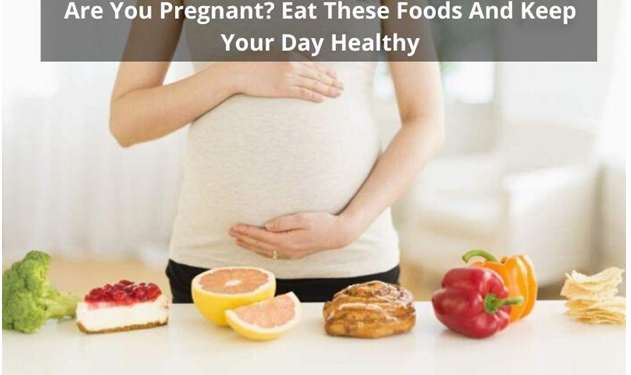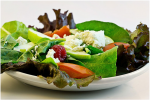Are You Pregnant? Eat These Foods And Keep Your Day Healthy

The pregnant woman needs more calcium, folic acid, iron, and protein than a pregnant woman, according to the American College of Obstetricians and Gynaecologists (ACOG). A healthy diet during pregnancy is essential for your baby’s growth and development. To get the nutrients you need, you need to eat from a variety of food groups, including fruits and vegetables, bread and cereals, protein sources and dairy products.
Typically, you will need to consume an additional 300 calories per day. For pregnant women’s list of best weight loss programs are available. In fact, you may need an additional 350–500 calories each day during the second and third trimesters. A diet without key nutrients can adversely affect a child’s development.
Bad eating habits and excess weight can also increase the risk of gestational diabetes and complications during pregnancy or childbirth. In a nutshell, choosing healthy and nutritious foods will help ensure the health of you and your baby.
The following are the foods and vegetables to keep your day healthy.
- Green Leafy vegetables:
Dark Green Broccoli and Leafy Vegetables Dark green broccoli and vegetables such as cabbage and spinach contain many of the nutrients that pregnant women need. These include fiber, vitamin C, vitamin K, vitamin A, calcium, iron, folic acid, and potassium. In addition, broccoli and leafy vegetables are rich in antioxidants.
They also contain plant compounds that support the immune system and digestion. Due to their high fiber content, these vegetables can also help prevent constipation, which is a very common problem among pregnant women. The consumption of green leafy vegetables has also been linked to a lower risk of low birth weight. In fruits such as oranges, grapefruits and molasses and vegetables such as broccoli, tomatoes and Brussels sprouts.
0.4 mg of folic acid per day is recommended to prevent neural tube effects. A good source of folic acid is found in dark green leafy vegetables (other sources of folic acid include legumes, such as black or lima beans, black-eyed peas and beef). You should have at least 2-4 servings of fruit and 4 or more servings of vegetables per day
- Protein:
Healthy animal-based proteins include fish, lean meat, chicken. Quinoa, known as a complete protein “, includes all the essential amino acids. Tofu and soy products, beans, lentils, legumes, nuts, seeds and nut butter are a good source of protein and iron.
Pregnant mothers who never ate shellfish were 53 percent more at risk of high anxiety levels. Your developing baby needs a lot of protein, especially in the second and third trimesters. Iron helps transport oxygen to the growing baby and also transports oxygen to the muscles to avoid symptoms such as fatigue, weakness, irritability and depression. Lean beef, chicken, lamb, liver, turkey and beef are good options.
Fish and some other mollusks can be a good nutritional option for pregnancy, according to the guidelines. You should consume at least 3 servings of protein per day. If possible, before conception antenatal vitamins should be taken up to three months.
- Dairy products:
During pregnancy, it is necessary to consume more protein and calcium to meet the needs of the growing fetus. Dairy products contain two types of high-quality proteins: casein and whey. Dairy products are the best source of calcium in the diet and provide high amounts of phosphorus, various B vitamins, magnesium and zinc.
Since your developing baby requires a significant amount of calcium, your body will take calcium from the bones if you don’t consume enough of it through your diet (which can lead to future problems, such as osteoporosis). Calcium includes milk, cheese, yogurt, cream soups and puddings and part of the calcium is also found in green vegetables, shellfish, beans and dried peas. You should consume at least 4 servings of dairy products per day.
- Fish liver oil:
Fish liver oil is produced from fish fatty liver, most often cod. The oil is very rich in EPA and DHA omega-3 fatty acids, which are essential for the development of the brain and eyes of the fetus. Fish liver oil is also very vitamin D, of which many people do not have enough.
It can be very useful for those who do not regularly eat seafood or supplements with omega-3 or vitamin D. Low intake of vitamin D has been linked to an increased risk of preeclampsia. Consumption of cod liver oil during the early stages of pregnancy has been linked to higher birth weight and a lower risk of disease later in the baby’s life.
A single serving of fish liver oil provides more than the recommended daily intake of omega-3, vitamin D and vitamin A. However, it is not recommended to consume more than one serving per day, since too much-preformed vitamin A can be dangerous for your fetus. High levels of omega-3 can also have blood-thinning effects. The following sample menu will give you an idea of what a pregnant woman should typically consume in one day for a healthy diet during pregnancy.
- Dried fruit:
Dried fruit can help increase caloric and nutritional intake, it is generally not recommended to consume more than one serving at a time. Dried fruit is generally rich in calories, fiber and various vitamins and minerals. A piece of dried fruit contains the same amount of nutrients as fresh fruit, only without all the water and in a much smaller form.
Therefore, a portion of dried fruit can provide a large percentage of the recommended intake of many vitamins and minerals, including folic acid, iron and potassium. Plums are rich in fiber, potassium, vitamin K and sorbitol. They are natural laxatives and can be very helpful in relieving constipation. Dates are rich in fiber, potassium, iron and plant compounds. Regular consumption of dates during the third trimester can help facilitate cervical dilatation.
Conclusion:
During pregnancy what you eat affects your energy and well-being and it can also directly affect a child’s health and development. As caloric and nutritional needs increase, it is very important to choose healthy and nutrient-rich foods. It is normal to gain weight during pregnancy, but it is important to increase it in a healthy way. This benefits you, your baby and your health after pregnancy.
Author Bio:
Nishil Prasad is a fitness freak and founder of Trusted Courses, He’s passion for staying healthy encouraged him to invest his knowledge and learning, Leveraging tech as a medium. He likes to drink dark coffee and often does keto diet. Check out our latest article on the list of best weight loss programs.






